|
What follows is adapted from "Appendix A and B" of my book Dissenting Views II, with some additions to bring it up to date. I bolded ones that I have added for this post. THE BEST BOOKS ON THE KENNEDY ASSASSINATION Like anything else, building such a list depends on criteria, but I tried to pick books which covered the most ground, were well-written, and that I go back to often. This is my list of the 10 best. JFK AND THE UNSPEAKABLE, Jim Douglass ACCESSORIES AFTER THE FACT, Sylvia Meagher THE LAST INVESTIGATION, Gaeton Fonzi RECLAIMING PARKLAND, Jim DiEugenio BREACH OF TRUST, Gerald McKnight HISTORY WILL NOT ABSOLVE US, E. Martin Schotz THE YANKEE AND COWBOY WAR, Carl Oglesby INTO THE NIGHTMARE, Joseph McBride FALSE MYSTERY, Vincent Salandria FORGIVE MY GRIEF, Penn Jones In the years from 2011 to 2021, there have been several excellent books on the assassination. These are ones I consider to be excellent additions to the literature: BURYING THE LEAD, Mal Hyman THE JFK ASSASSINATION, Jim DiEugenio THE DEVIL'S CHESSBOARD, David Talbot THE DEEP STATE IN THE HEART OF TEXAS, Richard Bartholomew * *With the caveat that I published this book and Richard is a friend. There are also some enormously important essays that have been written over the years which are accessible either on the net or in archives. Here are a few of the best, in my opinion: “The Chicago Plot to Kill JFK,” Edwin Black “The Posner Report: A Study in Propaganda,” David Starks "A Philadelphia Lawyer Analyzes the Shots, Trajectories and Wounds,” Vincent Salandria “John F. Kennedy’s Fatal Wounds: Witnesses and the Interpretations from 1963 to the Present,” Dr. Gary Aguilar “Is Vincent Bugliosi Right that Neutron Activation Analysis Proves Oswald's Guilt?,” Dr. Gary Aguilar “Who --- is Ron Rosenbaum?,” Edgar F. Tatro “The Other Murder,” Larry Ray Harris “Exit Strategy - In 1963, JFK ordered a complete withdrawal from Vietnam” - James Kenneth Galbraith "Why is the Rockefeller Commission so Single-Minded about a Lone Assassin in the Kennedy Case?,” Dr. Cyril Wecht “Assassination as a Tool of Fascism,” John Judge “The Last Words of Lee Harvey Oswald,” Mae Brussell “Nazi Connections to the JFK Assassination,” Mae Brussell “Between the Signal and the Noise,” Roger Feinman There are many other fantastic essays at the CTKA site. Other essays, like for example Ed Tatro’s takedown of Ron Rosenbaum, can be found at the Poage Legislative Library, run by my friend Ben Rogers. Look up the “Penn Jones collection” on the web at Baylor University for a wealth of material. A few of my other favorite books: DESTINY BETRAYED (2nd edition), Jim DiEugenio UNDERSTANDING SPECIAL OPERATIONS, Dave Ratcliffe BITING THE ELEPHANT, Rodger Remington JFK: THE BOOK OF THE FILM, Zachary Sklar & Oliver Stone THE ASSASSINATIONS, ed. Jim DiEugenio & Lisa Pease SPY SAGA, Phil Melanson THE OSWALD AFFAIR, Leo Sauvage THE KENNEDY CONSPIRACY, Paris Flammonde Additionally, there are other vital books on the case that provide either unique research or a unique perspective on the case. I think these all belong in any researcher’s library. SURVIVOR’S GUILT, Vince Palamara THE GIRL ON THE STAIRS, Barry Ernest HARVEY AND LEE, John Armstrong THE MAN WHO KNEW TOO MUCH (2nd edition), Dick Russell THE SEARCH FOR LEE HARVEY OSWALD, Robert Groden JFK: THE CIA, VIETNAM, AND THE PLOT TO ASSASSINATE JOHN F. KENNEDY, Fletcher Prouty ON THE TRAIL OF THE ASSASSINS, Jim Garrison THE ECHO FROM DEALEY PLAZA, Abraham Bolden CONSPIRACY, Anthony Summers (Summers retitled his book for later publication NOT IN OUR LIFETIME. Don’t get that one. Try to find the original.) INSIDE THE ARRB, Doug Horne BLOODY TREASON, Noel Twyman THE PRESEIDENT AND THE PROVOCATEUR, Alex Cox THY WILL BE DONE, Gerald Colby Zilg PRAISE FROM A FUTURE GENERATION, John Kelin In Appendix A I listed an article called “The Chicago Plot,” as one of the best things ever written about the assassination of JFK. It was written by Edwin Black.
A few of his books cited in this volume: IBM AND THE HOLOCAUST WAR AGAINST THE WEAK INTERNAL COMBUSTION He does excellent work that I endorse wholeheartedly. A few more books which are excellent for researchers: Feral House has just published a collection of Mae Brussell’s work. I can’t recommend her work more highly. It’s called THE ESSENTIAL MAE BRUSSELL, edited by Alex Constantine. Also, read as much John Judge as you can. Most of it is online and all of it is brilliant, especially “Good Americans” and “The Black Hole of Guyana.” There are also numerous YouTube videos of his talks. In addition, I edited and published a volume of his work called Judge for Yourself. RFK assassination THE ASSASSINATION OF ROBERT F. KENNEDY, Bill Turner and John Christian WHO KILLED BOBBY? Shane O’Sullivan SHADOW PLAY: THE KILLING OF ROBERT KENNEDY, Phil Melanson ASSASSINATION: ROBERT F KENNEDY 1925-1968, editors of UPI A LIE TOO BIG TO FAIL, Lisa Pease MLK assassination THE MARTIN LUTHER KING ASSASSINATION, Phil Melanson ORDERS TO KILL, William Pepper AN ACT OF STATE, William Pepper MURDER IN MEMPHIS, Mark Lane and Dick Gregory THE 13TH JUROR, trial transcripts TRUTH AT LAST, Lyndon Barsten A MEMOIR OF INJUSTICE, Tamara Carter MALCOLM X assassination THE JUDAS FACTOR, Karl Evanzz MALCOLM X: A LIFE OF REINVENTION, Manning Marable CONSPIRACYS, Baba Zak Kondo THE FBI WAR AGAINST TUPAC SHAKUR AND OTHER BLACK LEADERS, John Potash GENERAL POLITICAL RESEARCH PROPAGANDA, Jacques Ellul THE TECHNOLOGICAL SOCIETY, Jacques Ellul AHEAD OF THE PARADE, Sherman Skolnick THE OKLAHOMA CITY BOMBING AND THE POLITICS OF TERROR, David Hoffman THE KILLING OF KAREN SILKWOOD, Richard Raschke THE AFTERNOON OF MARCH 30, Nathaniel Blumberg INTERLOCK, Patricia Goldstone PRISONER OF INFINITY, Jasun Horsley THE VICE OF KINGS, Jasun Horsley REVOLUTION'S END, Brad Schreiber CHAOS, Tom O'Neill THE AMERICAN POLICE STATE, David Wise PATTY HEARST AND THE TWINKIE MURDERS, Paul Krassner MURDER AT THE CONSPIRACY CONVENTION, Paul Krassner THE HIDDEN PERSUADERS, Vance Packard THE STATUS SEEKERS, Vance Packard FOUR ARGUMENTS FOR THE ELIMINATION OF TELEVISION, Jerry Mander IN THE ABSENCE OF THE SACRED, Jerry Mander THE CAPITALIST PAPERS, Jerry Mander PROGRAMMED TO KILL, David McGowan WEIRD SCENES INSIDE THE CANYON, David McGowan JOURNEY INTO MADNESS, Gordon Thomas THE POLITICS OF HEROIN, Dr. Alfred McCoy IN THE SHADOWS OF THE AMERICAN CENTURY, Dr. Alfred McCoy NEMESIS, Chalmers Johnson KILLING TRUTH, William Blum THE MIGHTY WURLIZTER, Hugh Wilford THE CULTURAL COLD WAR, Frances Stonor Saunders DARK ALLIANCE, Gary Webb DRUGS OIL AND WAR, Peter Dale Scott THE ROAD TO 9/11, Peter Dale Scott BLOWBACK, Christopher Simpson SECRET AGENDA, Linda Hunt THE MAFIA THE CIA AND GEORGE BUSH, Pete Brewton TRADING WITH THE ENEMY, Charles Higham HENRY FORD AND THE JEWS, Neil Baldwin THE SERVICE, Reinhard Gehlen NO LOGO, Naomi Klein SPOOKS, Jim Hougan SECRET AGENDA, Jim Hougan SILENT COUP, Len Colodny & Robert Gettlin THE HALDEMAN DIARIES, H. L. Haldeman ABUSE OF POWER: THE NEW NIXON TAPES, Stanley Kutler, ed. THE OUTLAW BANK, Jonathan Beaty & S.C. Gwynne SPIDER’S WEB, Alan Friedman THE SMARTEST GUYS IN THE ROOM, Bethany McLean IN BANKS WE TRUST, Penny Lernoux THE UNDERGROUND HISTORY OF AMERICAN EDUCATION, John Taylor Gatto A HISTORY OF THE GREAT AMERICAN FORTUNES, Gustavus Myers THE HISTORY OF THE STANDARD OIL COMPANY, Ida Tarbell CONFESSIONS OF AN ECONOMIC HIT MAN, John Perkins A GAME AS OLD AS EMPIRE, ed., Steven Hiatt GLOBALIZATION AND ITS DISCONTENTS, Joseph Stiglitz SECRET AND SUPPRESSED, ed., Jim Keith THE OCTOPUS, Kenn Thomas & Jim Keith TRUMPOCALPYSE NOW, Kenn Thomas SEX AND ROCKETS, John Carter THE ASSASSINATION OF JULIUS CAESAR, Michael Parenti DIRTY TRUTHS, Michael Parenti REARVIEW MIRROR, William Turner HOOVER’S FBI, William Turner THE PIED PIPER, Richard Cummings IN DEFENSE OF FOOD, Michael Pollan AMERICAN THEOCRACY, Kevin Phillips PSYCHIC DICTATORSHIP IN THE U.S.A., Alex Constantine THE COVERT WAR AGAINST ROCK, Alex Constantine THE ANGLO AMERICAN ESTABLISHMENT, Carroll Quiqley A CENTURY OF WAR, William Engdahl AMUSING OURSELVES TO DEATH, Neil Postman THE RELENTLESS REVOLUTION, Joyce Appleby NICKEL AND DIMED, Barbara Ehrenreich BAIT AND SWITCH, Barbara Ehrenreich AFRICAN-AMERICAN HISTORY SOUL ON ICE, Eldridge Cleaver MALCOLM X SPEAKS, edited by George Breitman THE BLACK PANTHERS SPEAK, edited by Philip S. Foner THE BLACK PANTHER PARTY RECONSIDERED, Charles E. Jones WOMEN, RACE, AND CLASS, Angela Davis SHACKLED AND CHAINED, Eugene Puryear THE ASSASSINATION OF FRED HAMPTON, Jeffrey Haas BAD BLOOD: THE TUSKEGEE SYPHILIS EXPERIMENT, James Jones MEDICAL APARTHEID, Harriet Washington REVOLUTIONARY SUICIDE, Huey P. Newton WAR AGAINST THE PANTHERS, Huey P. Newton TO DIE FOR THE PEOPLE, Huey P. Newton SEIZE THE TIME, Bobby Seale READY FOR REVOLUTION, Kwame Ture (Stokely Carmichael) BLACK POWER, Stokely Carmichael THE NEW JIM CROW, Michelle Alexander FORCED INTO GLORY: ABRAHAM LINCOLN’S WHITE DREAM, Lerone Bennett, Jr. EYES ON THE PRIZE, ed. Dr. Clayborne Carson THE MALCOLM X FBI FILE, ed., Dr. Clayborne Carson More books of interest in alternative history and viewpoints (with kind assistance from Dr. Faith G. Harper: HISTORY AND EXPERIENCE OF INDIGENOUS AMERICA EDUCATION FOR EXTINCTION: AMERICAN INDIANS and the BOARDING SCHOOL EXPERIENCE, David Wallas Adams CONQUEST: SEXUAL VIOLENCE AND AMERICAN INDIAN GENOCIDE, Andrea Smith UNQUIET GRAVE: THE FBI AND THE STRUGGLE FOR THE SOUL OF INDIAN COUNTRY, Steve Hendricks A CENTURY OF DISHONOR, Helen Hunt Jackson A LITTLE MATTER OF GENOCIDE: HOLOCAUST AND DENIAL IN THE AMERICAS 1492 TO THE PRESENT, Ward Churchill PRISON WRITINGS: MY LIFE IS MY SUN DANCE, Leonard Peltier CUSTER DIED FOR YOUR SINS: AN INDIAN MANIFESTO, Vine Deloria, Jr. HOW CHOCTAWS INVENTED CIVILIZATION AND WHY CHOCTAWS WILL CONQUER THE WORLD, D.L. Birchfield A PEOPLE’S HISTORY OF THE UNITED STATES, Howard Zinn THE LONE RANGER AND TONTO FISTFIGHT IN HEAVEN, Sherman Alexie THE HOUSE OF PURPLE CEDAR, Tim Tingle
0 Comments
This piece originally appeared in my book DISSENTING VIEWS (2009). 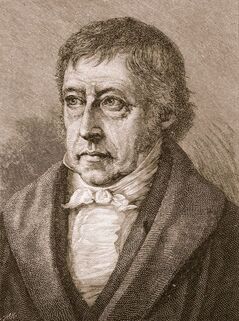 Having availed myself of the literature concerning the German philosopher G.W.F. Hegel (1770-1831), I have found that the statement expressed in this essay’s title – although it finds some support in, for example, Karl Popper – is not an altogether popular sentiment. And yet I can come to no other conclusion. Hegel, the most famous German philosopher of his time, lecturing to enormous crowds at the University of Berlin in Prussia, inventor of the dialectical concept later borrowed by Marx, was stupid – extraordinarily so. Hegel, it is often said, was the first philosopher to take the idea of history seriously in his thought. He was the pioneer in this arena and, indeed, one of his early works bears the title The Philosophy of History. It is true that Thomas Hobbes defended the rule of kings, and Hume once wrote an academic treatise on history, but these did not specifically invoke history as a philosophical issue. Hegel’s sense of history makes him unique. He was also a uniquely terrible writer. Some of it is unintentionally funny, and philosophy students may occasionally come to the decision that Hegel’s writings are meaningless gibberish. This is not the case; they are intelligible; and yet one cannot lay too much blame on those students. Hegel wins no awards for self-expression. An example of Hegel’s historical sensibility can be found in his famous quote “the real is the rational, and the rational is the real.” He details it like so: The only Thought which Philosophy brings with it to the contemplation of History, is the simple conception of Reason; that Reason is the Sovereign of the World; that the history of the world, therefore, presents us with a rational process.[1] Hegel pointed out the distinction between people’s rationality and their brute desires. This had often been taken to be an immutable description of humanity, torn between desire and reason. Hegel disagreed, and pointed to a historical situation in which (he claimed) there was no rift: Ancient Greece. There, he argues, the people (by which he really means the State) achieved a harmonious blend of the two. (One sees immediate oversimplification in Hegel’s thesis, but let us move on.) In any case, Hegel comes to the conclusion that the split between rationality and human desire is a historical event. He even claims to know when it occurred. It happened, he says, with the rise of individual conscience in Protestant Europe. The important thing to note here is that Hegel believes that harmony, in principle, could be restored between reason and desire. This harmonious situation Hegel calls freedom. Now you have to understand that, for Hegel, his idea of freedom is probably not what your or my idea of freedom is, but we’ll get there in a moment. This methodology is a radical departure from the prior rationalist philosophers. Kant, for example, did not invoke societies when spelling out his epistemology or ethics. Both are meant to apply to all people in all situations, whether he is describing the categories of existence or the Categorical Imperative. Hegel, on the other hand, like Democritus asserts a continuously changing environment. The Dialectic Hegel states that historical ‘movement’ or progression is measured by a process he refers to as Dialectic. The Dialectical Process is one in which there is a Thesis, an Antithesis, and a final Synthesis. That is to say, there is a movement, a movement in opposition, and a resolution. However, this resolution does not end the process; instead, it becomes a further Thesis, generating another Antithesis and so on until it reaches a specific point of total enlightenment. As we shall see, this apex of human history comes at another specific moment in time: When Hegel, in his infinite wisdom, writes this all down. Seriously. Let’s look at a specific example of the Dialectic: THESIS. Athenian society is in a simple (or naïve) harmony. (Hegel does not get into the issue of whether the slaves participate in this simple harmony, but we’ll take a look at that in a bit.) ANTITHESIS. Socrates goes around asking a lot of impertinent questions. What is truth? What is the just action? What is virtue? SYNTHESIS. The state kills Socrates. But out of this is borne a movement toward Conscience, which then results in further Antithesis, etc. Hegel notes that the State was perfectly justified in killing Socrates, since he was in fact subverting their authority. In point of fact, Hegel is always going to end up saying that the State’s actions are morally correct; it’s the whole point of his philosophy, explained perhaps by his being Prussian, and explaining perhaps his continual popularity with those who would rule us: Summing up what has been said of the State, we find that we have been led to call its vital principle, as actuating the individuals who compose it – Morality. The State, its laws, its arrangements, constitute the rights of its members; its natural features, its mountains, air, and waters, are their country, their fatherland, their outward material property; the history of this State, their deeds; what their ancestors have produced, belongs to them and lives in their memory. All is their possession, just as they are possessed by it; for it constitutes their existence, their being.[2] A very convenient doctrine from the State's point of view. What is all this dialectical movement about? Hegel says that this movement is toward ever increasing freedom of the mind. Alas, ultimate freedom manifests itself as a police state. As Russell remarked, “This ‘freedom,’ for him, means little more than the right to obey the police.”[3] Also, it should be said that the essentially Prussian nature of Hegel cannot be ignored here. He eventually gets round to the idea that Germans are smarter than everyone else. Orientals do not yet know that Spirit – Man as such – is free. And because they do not know it, they are not free…The consciousness of freedom first arose among the Greeks, and therefore they were free. But they, and the Romans likewise, only knew that some are free – not Man as such. This not even Plato and Aristotle knew…Only the Germanic peoples came, through Christianity, to realize that man as man is free and that freedom of Spirit is the very essence of man’s nature.[4] Cue Tannhauser. In all seriousness, is there any way to analyze these statements as anything other than demented gibberish? By the by, these historical ideas are literally infused in history. History, as Billy Joel once said, is a “living thing.”[5] In effect, it is a metaphysical issue. It seems to me that Hegel is anticipating the following criticism: “You say that history is constantly changing. But what is this it that changes?” To whom or what does this dialectical process operate through? Hegel has a ready answer: Geist. There is no perfect translation of the word in English, but it is commonly translated as “mind” or “spirit.” That is there is a literal spirit of History (“zeitgeist”) that serves as the conduit for all this change. Like so: History is mind clothing itself with the form of events or the immediate actuality of nature. The stages of its development are therefore presented as immediate natural principles. These, because they are natural, are a plurality external to one another, and they are present therefore in such a way that each of them is assigned to one nation in the external form of its geographical and anthropological conditions.[6] Alienation To this set of ideas, Hegel adds the concept of ‘alienation.’ The alienated soul, to use his example, is one who prays to an all-powerful God while seeing himself as base and powerless. Hegel insists that this is an incorrect, if common, way of looking at God. God and the individual are one, he states. The attributes of God are our qualities, in effect. I mentioned before that Hegel ultimately makes himself the most important person in the world. That’s because he says that the moment when there is recognition that the individual and Geist are one and the same is the point of Absolute Knowledge. It is a state of complete freedom and total rationality. When is it that Geist realizes that it is the ultimate reality? When Hegel thinks of it and writes it down in rather large books. Therefore, Hegel's works are not merely descriptive of the Dialectical process and Geist; their creation is the precise point in human history when a rational order of the world becomes possible. Thus, Hegel’s own philosophy is the most important event in human history. Ahem. Seen Lady in the Water? It’s the one where there’s this mermaid in the swimming pool and Paul Giamatti finds her and does battle with killer hedgehogs and such. Do you remember when it was finally revealed in the movie that the whole enterprise was about a book – the most important book in the whole world – and the guy playing the writer was (producer and director) M. Night Shyamalan? Do you remember groaning at Shyamalan’s incredible ego, casting himself as the savior of mankind? That’s Hegel. It should be clear what happens at this point. Hegel has just identified the individual with Geist, that is, historical change. The State and the individual are One. Under such conditions we can impose a rational, perfectly orderly society. It just so happens that the perfect State is militarist. And if you disagree, you are revealing yourself to be out of harmony with the State. Do you remember the example of Socrates? Let’s look at another example. A Dialogue A Beatnik is reading a book and having some coffee. Hegel saunters over. HEGEL: Say, what are you doing there? BEATNIK: Reading Cities of the Red Night.[7] HEGEL: (frowning) No, I don’t think you want to read that. BEATNIK: Sure I do. HEGEL: You only think you want to read that novel. In truth, your wants and desires are manipulated by forces beyond your control. Once you’ve achieved rationality, you’ll realize this and then you’ll realize you don’t want to read this novel. BEATNIK: Whatever. Can I just read in peace? HEGEL: (getting exasperated) Put that book down. BEATNIK: Dude, what is your damage? HEGEL: No, no, no. (Takes book away) Off to prison you go. BEATNIK: But I don’t want to go to prison. HEGEL: (Secret police haul Beatnik away) See, you only think you don’t want to go to prison, but in fact… And so it goes, as Vonnegut used to say. Historical Racism Peter Singer once said: I don’t think you can really trace Hegelian ideas at all in Hitler’s kind of racist nationalism. You can’t find that kind of racism in Hegel.[8] Well, Peter Singer is a famous man by philosophical standards, and he has many more degrees than I, but on this issue he is dead wrong. It’s not often you see this matter get addressed, and thanks to cultural relativism it is perhaps impertinent for me to even bring this up, but Hegel, in addition to being stupid and, incidentally, a proto-Nazi, was extremely racist. He also had a tendency to make malevolently stupid general pronouncements of racist intent without any evidence. The peculiar African character is difficult to comprehend, for the very reason that in reference to it, we must quite give up the principle which naturally accompanies all our ideas – the category of Universality. In Negro life the characteristic point is the fact that consciousness has not yet attained to the realization of any substantial objective existence – as for example, God, or Law – in which the interest of man’s volition is involved and in which he realizes his own being…The Negro, as already observed, exhibits the natural man in his completely wild and untamed state. We must lay aside all thought of reverence and morality – all that we call feeling – if we would rightly comprehend him; there is nothing harmonious with humanity to be found in this type of character. The copious and circumstantial accounts of Missionaries completely confirm this…[9] Hegel relies on missionaries for his information, which explains a lot I suppose. However, that hardly explains the following ravings: The Negroes indulge, therefore, that perfect contempt for humanity, which in its bearing on Justice and Morality is the fundamental characteristic of the race…Tyranny is regarded as no wrong, and cannibalism is looked upon as quite customary and proper. Among us instinct deters from it, if we can speak of instinct at all as appertaining to man. But with the Negro this is not the case, and the devouring of human flesh is altogether consonant with the general principles of the African race…[10] He continues: From these various traits it is manifest that want of self-control distinguishes the character of the Negroes. This condition is capable of no development or culture, and as we see them at this day, such have they always been. The only essential connection that has existed and continued between the Negroes and the Europeans is that of slavery.[11] This is lunacy even in 1831. I once did some research into Biblical justification for slavery, and found numerous texts predating the American Civil War of preachers who quoted from and derived support for slavery. Very few of them approached Hegel’s insane beliefs as he lays them out. Now one might argue that all of us are simply prisoners of our cultural milieu, and that Hegel is merely expressing the ruling zeitgeist. Bullshit. Hegel’s racism would invalidate his entire philosophy, or at the very least cause us to reevaluate it, even if his philosophy were not militarist drivel. Hegel’s concept of the Dialectic gets frequent mention even today, and not just in the context of Marxist Dialectical Materialism. It is frequently asserted that when the State wants to achieve certain objectives, it follows the Thesis-Antithesis-Synthesis pattern. (For example, 9/11 [thesis] provokes horror and sympathy among the general populace [antithesis], thus providing the opportunity for more police state legislation [synthesis].) There may be something to this; however, in plain terms, I think we can dispense with treating Hegel as anything more than a historical footnote. His metaphysics is singularly inane; his epistemology is guilty of false-ego identification; and the primary utility of his philosophy has been to justify the behavior of tyrants. In short, his philosophy is fatuous poison. [1] G.W.F. Hegel, Philosophy of History (Dover Publications, New York: 1956 (1831), 9. [2] Ibid, pg. 52. [3] Bertrand Russell, History of Western Philosophy (Touchstone, New York: 2007 (1945), 737. [4] Hegel, Reason in History (Macmillan, New York: 1989 (1837), 25. [5] It seems to me Joel was quoted as saying this in Newsweek at approximately the same time his song “We Didn’t Start the Fire” was popular. I can’t find the quote, however, and it is thus possible I am mistaken. [6] Hegel, Philosophy of Right (1821), 346. [7] Novel by William S. Burroughs. [8] Bryan Magee, The Great Philosophers (Oxford University Press: 1987), 207. Singer was responding to a question given to him by Magee regarding Hitler’s pernicious influence and possible relationship to Hegel. [9] Hegel, Philosophy of History, pg. 93. [10] Ibid, pg. 95. [11] Ibid, pg. 98. I wrote this piece when I was about 19 years old. The topic has been in the news again lately so I thought it might be appropriate to revisit. I. In the ugly period of American history preceding (and during) the Civil War, prominent Southerners defended the use of African-Americans as slaves. There were attempts to appeal to reason, given from forums both public and private. Some defended slavery from an economic standpoint; others from an educational standpoint; and yet, such defenses were ultimately had less popular appeal than those arguments that relied on Christianity. Even ministers preached pro-slavery arguments from their pulpits, using Biblical texts to support their stand. How did a text that for many people defines morality – the Holy Bible – come to be used as a defense for a holocaust? Unfortunately, in most cases it was not a matter of twisting the words from the text, but rather reliance upon the strict meanings therein. By the 1850s, pro-slavery arguments no longer defined slavery as a necessary evil, but rather as an absolute good. The advocates based their arguments on the Bible, drawing arguments that seemed most pertinent and convincing to the public at large. One of the arguments most often used was that the African-American race was morally unsalvageable. The Reverend Josiah Priest in 1851 “proved” that blacks were “violent, ignorant, and cannibalistic,” being host to several “unnatural” traits. He quoted Genesis 9: 24-27 to this end: “And Noah awoke from his wine, and knew what his younger son had done unto him; and he said, cursed be Canaan: a servant of SERVANTS shall he be unto his brethren.” This is the familiar (if repulsive) argument that blacks are the cursed sons of Ham. Canaan’s betrayal of Noah is relied upon to form the idea that they are both inherently evil and mentally inferior. According to Reverend Priest, they had been ordained by God to do nothing more than serve; and who was man to deny the word of God? (Priest 31) This was a fairly common opinion among Southerners at the time, and even found a foothold in the North. Conventional wisdom held that blacks were barbaric and incapable of being educated. This opinion is expressed, for example, in Southern Institutes, written by the attorney George S. Sawyer: The social, moral, and political, as well as the physical history of the Negro race bears strong testimony against them; it furnishes the most undeniable proof of their mental inferiority. In no age or condition has the Negro shown the capacity to throw off the chains of barbarism and brutality that have long bound down the nations of that race; or to rise above the common cloud of darkness that still broods over them (Franklin 131). Another who used the Bible to defend servitude was J. Henry Hopkins, a minister who wrote the Scriptural, Ecclesiastical, and Historical View of Slavery. In the book, he argues that slavery may well be a physical evil, causing pain, but is in no way a moral evil. He quotes Exodus 20:17: “Thou shall not covet thy neighbor’s wife, goods, nor his man servant, nor his ox, nor his ass, nor anything that is his neighbors.” Though he takes care to mention that “wives may be offended” by the passage, he notes that the text is clear on the point – a servant is listed among the possessions “owned” by a given master. He also argues that the separation of wife and husband is ordained by God, courtesy of Exodus 21:5-6: “If the servant should plainly say, I love my master, my wife, and my children; I will not go out free; then his master shall bring him to the judges; he shall also being him to the door or unto the door post; and his master shall bore his ear through with an awl, and he shall serve him forever.” Reverend Hopkins remarks: “With this law before his eyes, what Christian can believe that the Almighty attached immortality or sin to the condition of slavery?” (Hopkins 9) The Reverend poses an excellent question, one that should call into question the supposedly high moral status of the Bible. In 1856 Richard Fuller presented a pro-slavery argument resting on two essential points. The first is that slavery is not a moral evil, because it was not “proper and necessary to this original right, that a human being be deprived of any right which is justly his, as an immortal, intelligent, moral, social, and fallen creature. Therefore, a right to the services of man without contract or consent, does not justify any wrong done to his mind, or soul, or domestic relations.” His second point is that the only right removed from a slave is personal freedom; and the removal of another’s personal freedom is “...not necessarily a sin.” (Fuller 158) The specific emphasis on the fallen nature of man supplies the opening needed to come to this conclusion, an idea that depends – of course – on traditional Christianity. Another very important argument from the time is addressed in Christian Doctrine of Slavery. (Note the title. There is no confusion here, no mincing of words.) In this amazing document, Joseph Armstrong states that the enslavement of others never appears as one of the “great sins of Mankind” in the New Testament. In his view, had Jesus wanted to say something about it, he would have mentioned it along with avarice and lust as moral evils. Thus, by not speaking out against it, Jesus is indirectly condoning it. (Armstrong 21) The author also contends that the New Testament was written in slave-holding states, and that one of the letters is addressed to a slave-holder. “Christ and the apostles lived, and labored, and founded the Christian Church, in the midst of slave-holding communities. This, the New Testament itself, as well as concurrent testimony of all history, places beyond all reasonable question.” (Armstrong 10) In a much-publicized event that was recorded and later published, Reverend W. G. Brownlow of the South and Reverend A. Pryne of the North held a debate in 1858. During this debate, Brownlow repeatedly argued that servile “bondage was instituted by Moses, under the inspiration of God.” (43) He also presented a series of statements regarding the equality of humankind, from what he modestly took to be God’s viewpoint. I endorse, without reserve, that much-abused sentiment of an eminent Southern statesman, now no more, Gov. McDeffie, that “slavery is the corner-state of our Republican edifice;” while I repudiate, as ridiculously absurd, that much lauded, but nowhere accredited dogma of Thomas Jefferson, that “all men are created equal.” God never intended to make the Negro the equal of the white man, either morally, mentally, or physically. He never intended to make the butcher a judge, nor the baker a president, but to protect them according to their claims as a butcher or baker. (Brownlow 43)
II. Ultimately, the Bible – and Christianity itself – served a dual purpose for slavers. It provided them with a ready defense against the abolitionists, as well as an opiate capable of reducing insurrections. The slaveowners and Southern ministers recognized that fact, and worked hand-in-hand to encourage Christianity among blacks, for the express purpose of keeping them down. William Pope Harrison’s Gospel Among the Negroes is a document of the missionary work undertaken during the period, making a case for the “calming factor” of Christianity in minimizing slave rebellion. He takes note, for example, of a 1712 slave insurrection in New York. A school had been recently established for the religious education of African-Americans, and those enrolled in the school were immediately suspected. However, it was soon discovered that none of those who had been enrolled in the school were involved. For Harrison, this strengthened his theory that Christianity could aid in “domestication.” Harrison also made note of the considerable population difference between whites and blacks in Southern states: ...in the states of South Carolina and Georgia, there were large sections of the country in which blacks outnumbered the whites by five to one. What was it that preserved the authority of the masters, if it was not the moral power exerted by a superior race? Could this power control the thousands who were exasperated against the hundreds of whites, if there were no ties, no kindness, no respect engendered by human treatment, and uniform justice among the masters? (Harrison 112-113) There were several councils that met during the Antebellum period to discuss the religious instruction of blacks. One in particular, a committee that met in South Carolina in 1845, I will use as an example. The committee was formed among slaveowners and concerned the need for “increased encouragement of Negro attendance at church.” In the actual transcript of the meeting, they focus on the teaching of “Christian light and love,” and remarks that the “true interest of master and slave, both spiritual and temporal, are...closely associated.” (Huger 8-9) Would we most naturally look for effective labour, in the dissolute, the unprincipled, and the discontented; or in those who are godly and honest, regular in their habits, and satisfied with their condition?...Yes, we know of no other means of accomplishing ends so desirable, but those which divine mercy has made the subjects of express commandment; and of which love to God and love to our neighbour are the embodiment. (Huger 9, Italics mine) Clearly the slaveowners recognized the benefits of Christianizing the slave populations. Not only would they be making them more docile and less likely to revolt, but they might also possible increase their performance. The motivation behind this is just astonishing. III. Christian ethics were undoubtedly important to the preservation of the slave industry in the Antebellum South. The questions remains, however – just how important was it? One could argue that the slaveowners were reaching for any argument that might preserve their business (and they were) and so anything would have served their purposes. Even then, why would they so readily and easily draw upon their religious faith to defend their actions? The answer lies in Christianity itself and the far-reaching effects it had on the populace. With Christianity as the basis for every child’s moral education, appeals to the Bible had the strongest effect on public opinion. After all, part of the reason Native Americans and African-Americans were treated as savages was due to their non-Christian status. Conventional wisdom held that they would not be saved come Judgment Day, so why think twice about using or eliminating them on Earth? Christianity was the easiest and most germane outlet for anti-abolitionist propaganda, with ministers serving as public go-betweens. In From Slavery to Freedom, John Hope Franklin writes that the “turn-the-other-cheek philosophy” helped keep slave insurrections from occurring. This adoption of American religious ideology by the African slaves ended up serving the purposes of slaveowners to no small effect; in the Bible, of course, the lowest order of people are the most holy and will be saved. It is interesting to note that the pattern of appeals to Christianity is precisely the same as that always adopted by those in power. A similar thing occurred when Darwinism took root in the public consciousness, as Social Darwinists began to argue that “survival of the fittest” applied to corporations; they used Darwinism to defend rapaciousness. There is a key difference, however. The difference is that the Social Darwinists did not read The Origin of Species very carefully, or they would not have argued as they did; they misconstrued the text. That is not the case with Christianity. It is not hard at all to find defenses for slavery in the Bible, as the quotes within this article show. And, of course, it is absolutely true that the Bible is generally a pro-slavery document, containing much material that defends the status quo, whatever that may be, as trade for a Heavenly payoff. One important cultural note to remember is that the heavy reliance on Christianity for anti-abolitionist arguments came from desperation. After all, divorced from religious context, what arguments are to be made for enslaving an entire people? Appeals to reason have far less currency than appeals to human emotion, especially when they come from a church pulpit. In the end, it is a simple fact that Christianity was a major contributor to one of the most disgusting crimes in history, and this contribution did not arise from a misuse of the text. Rather, it emerged from a careful reading of it. SOURCES
Brownlow, W. G. Ought American Slavery Be Perpetuated? (1858) Cobb, Howell. Scriptural Examination of the Institution of Slavery in the United States; With Its Objects and Purposes. (1856) Fuller, Richard. Domestic Slavery Considered As A Scriptural Institution. (1856) Hopkins, John Henry. Scriptural, Ecclesiastical, and Historical View of Slavery. (1864) Huger, Daniel. South Carolina Meeting on the Religious Instruction of the Negroes. (1845) Ross, Augustus Fred. Slavery Ordained by God. (1857) This appeared originally in Steamshovel Press.
This piece originally appeared in my book Dissenting Views. Glossary of Common Terms
Political discussions can sometimes become a Babel Tower cacophony, as people talk over each other without ever arriving at common ground. I want to avoid confusion in this book and explain precisely what I mean when certain terms are used, so please refer to the following glossary when necessary. If a term defined in this glossary appears in another definition, it is italicized. American Values: The belief in the inherent goodness of American intentions and the rightness of our collective cause, without any reference to what is sometimes called ‘the external world.’ Anti-American: This is a broad term that implies resistance to American Values. This can include such activity as thinking, reading books or magazines outside the range provided by your local airport, speaking to other people about topics that are not established by television, and other forms of revolutionary terrorism. This should not be confused with one who is Anti-Swede; as the name implies, this would be simply be a person with an aversion to Ingmar Bergman films. Bad American: A corrective supplied by Bill O’Reilly, when he announced that he would no longer label people who resisted the Iraq War as “un-American.” These degenerate infidels would, he said, now be referred by him as “Bad Americans.” Bad Americans are stupid and going to Hell, but should not be immediately imprisoned unless there are additional crimes such as suspected thinking. Conspiracy Nut: Any individual who asserts that persons of great power and influence may, like all other humans, take actions in pursuit of their perceived interests. Conspiracy Theory: Any notion suggesting that human beings in positions of power will, all other things being equal, attempt to act in their perceived best interests if they think they can get away with it. By definition, can never be supported by evidence. Evidence: Information supporting core beliefs and American values. Evil: Any person or group who behaves in their own interests to the detriment or potential detriment of the United States, Great Britain, or Israel. See terrorist. FBI Investigation (on Television): A massively coordinated effort that includes the collection of all available forensic evidence, the following of leads, the interviewing of relevant parties, and the arrest and eventual confession of the perpetrator, in under one hour including advertisements. FBI Investigation (Real Life): A massively coordinated effort that includes the destruction of inconvenient discoveries,[1] the failure to interview relevant suspects,[2] the identification of an alleged perpetrator despite a total lack of evidence,[3] and the failure to arrest even the alleged perpetrator due to lack of interest.[4] Fair and Balanced: The scientific discovery made by noted social scientist Rupert Murdoch that there are two sides to every issue, one acceptable to sinful deviants and one acceptable to normal people. You decide which is best. Fair Trade: A Marxist-Leninist idea concocted by hippies and other wild-eyed leftists that asserts that global welfare, not corporate interests, should dictate policy. Free Trade: A global market system that respects the rights of NATO countries and their allies to vigorously pursue the economic assault and dismantling of less fortunate countries. Freedom: Your right to obey the Blackwater mercenary holding the automatic rifle. Freedom Fighters: A group of revolutionaries who have aligned their goals with the desires of the United States, Great Britain, or Israel; for example, the expansion of increased territory from which to buy and sell narcotics. Sometimes freedom fighters, once they have attained power, will begin to demand a larger percentage of the profits or -- if they become truly evil -- start using their profits to rebuild the infrastructure of the country they live in. Such activity automatically turns them into terrorists. Globalism: The interconnected world that will magically raise the living standards of ordinary human beings, if only we wish with all our might. By no account should it ever be confused with a concept that will result in near-universal misery but enormous profits for a tiny elite and its paid cheerleaders in the mainstream press. Historical analysis: The recognition, based in fact, that historical events are so complex and motives so arcane that no one can ever ascribe any given activity to the will of any person or group of people. Unless, of course, it happened in Stalinist Russia or something. Historian: A paid professional, adept at tracing shadows on the cave wall. Insurgency: What happens when a people conquered by NATO forces fail to submit to freedom. The British sometimes refer to this behavior as being a “poor sport.” 9/11: The murder of 3,000 people on American soil by Osama bin Laden and his dark minions, the imperative for wars with Afghanistan and the Middle East, the reason Rudy Giuliani is a hero of the realm, and the event that proves the pressing need for a tax break for the wealthiest one-tenth of one percent of all Americans. ‘Possibly linked to Al-Qaeda’: This phrase refers to people who are Arabic, Indian, African-American or otherwise scary and disliked by The American Public and are found to have possibly contributed some money to a charity that may have been connected to a mosque that could theoretically have had a known terrorist’s cousin in the same county. This also refers to people such as Saddam Hussein, who has no known connection to Al-Qaeda but is also not well liked by The American Public. This emphatically does not refer to those who definitely have a link to Al-Qaeda, such as Zbigniew Brzezinski.[5] Propaganda: Information at odds with core beliefs or American values. Supporting the Troops: This consists of praising the heroism and sacrifice of soldiers as they fight and die in operations benefiting military contractors, munitions manufacturers, and a handful of investment bankers and their stockholders. Suggesting that the best way to support the troops would be to bring them home is, of course, seditious and a clear example of thinking. Targeted Assassination: The only sensible response to terrorist actions that doesn't involve saturation bombing. Terrorism: Any activity that thwarts or attempts to thwart U.S., British, or Israeli interests. Note: can also refer to a conquered people’s refusal to take any action other than throwing themselves under the treads of advancing NATO tanks. Terrorist: Any person who is no longer perceived as useful to the U.S. Department of Defense and is therefore now off the payroll; i.e., Rafael Trujillo, Manuel Noriega, Saddam Hussein, Osama bin Laden, etc. Thinking: The use of one’s cognition to make judgments that could, at least in principle, conflict with those handed down by the proper authorities. Such behavior invites ridicule, ostracism, and potential imprisonment. [1] ‘Anthrax Probe Hampered by FBI Blunders,’ San Francisco Chronicle, 11 Nov 2001. http://www.sfgate.com/cgi-bin/article.cgi?f=/chronicle/archive/2001/11/09/MN153227.DTL [2] ‘Bush-Cheney 9/11 Interview Won’t Be Formally Recorded.’ New York Times, 28 April 2004. http://www.nytimes.com/2004/04/28/politics/28BUSH.html?ex=1398484800&en=e97c72d90a660676&ei=5007&partner=USERLAND [3] Speech by FBI Director Robert Mueller, 19 April 2002. http://www.fbi.gov/pressrel/speeches/speech041902.htm [4] George W. Bush Press Conference, 13 March 2002. http://www.whitehouse.gov/news/releases/2002/03/20020313-8.html [5] Zbigniew Brzezinski interview in La Nouvelle Observateur, 21 January 1998. http://www.globalresearch.ca/articles/BRZ110A.html |
AuthorThis is Joe Green's blog. Archives
August 2021
Categories |
||||||||
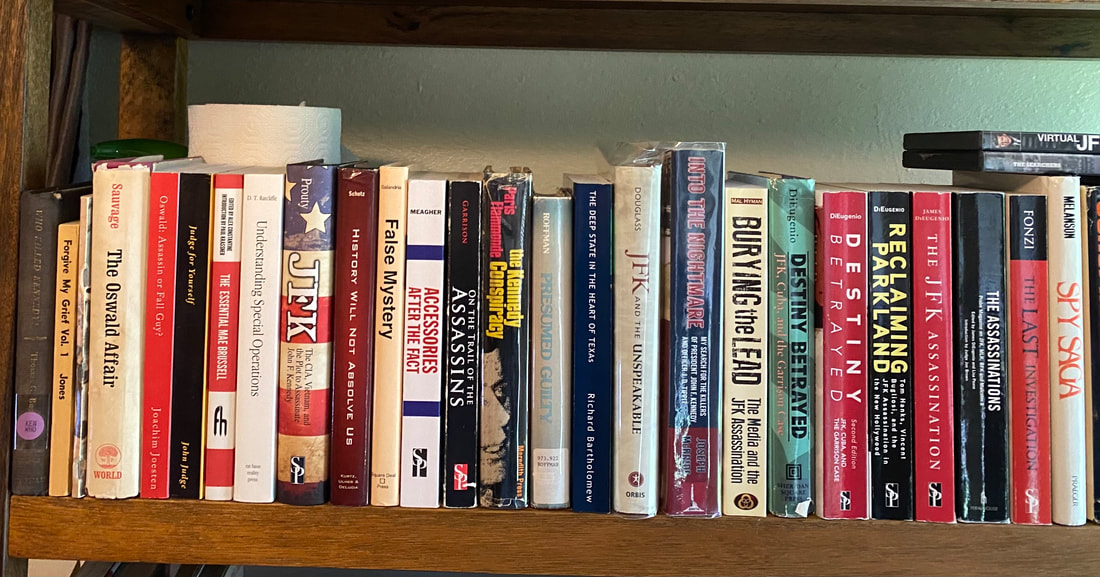

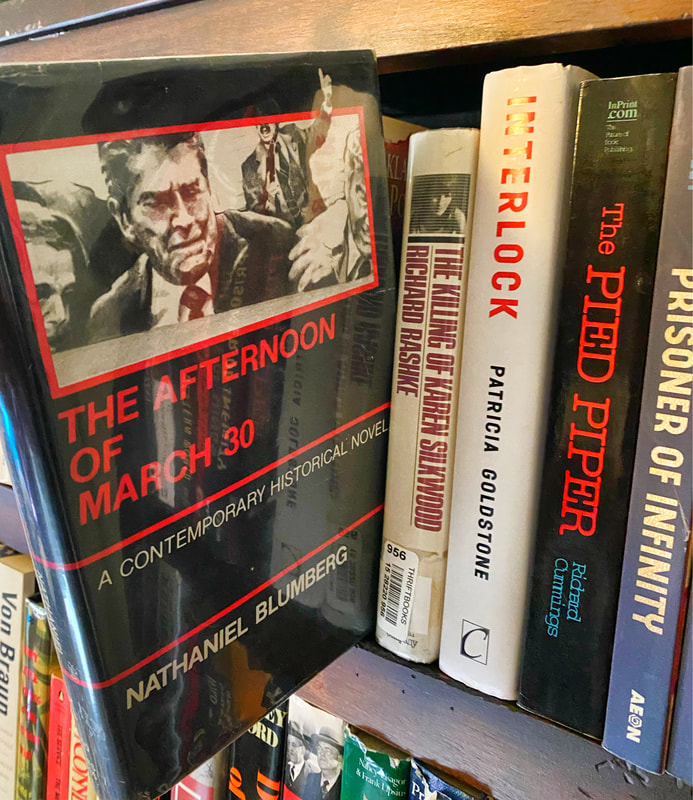
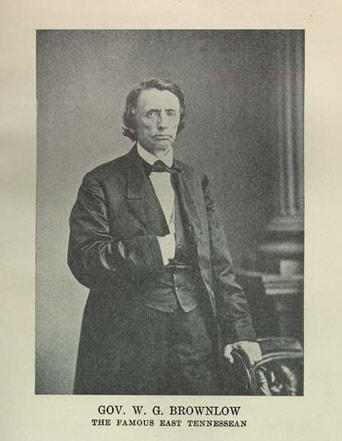
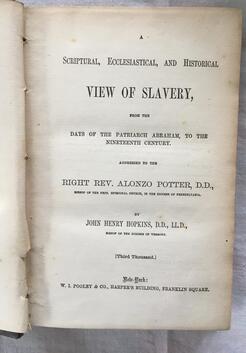
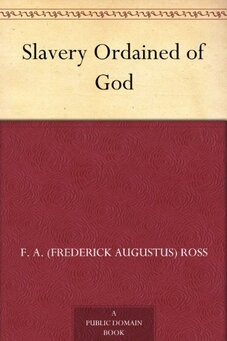
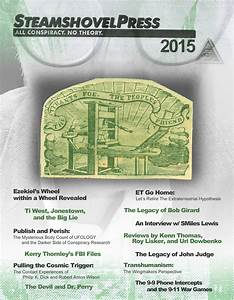
 RSS Feed
RSS Feed
